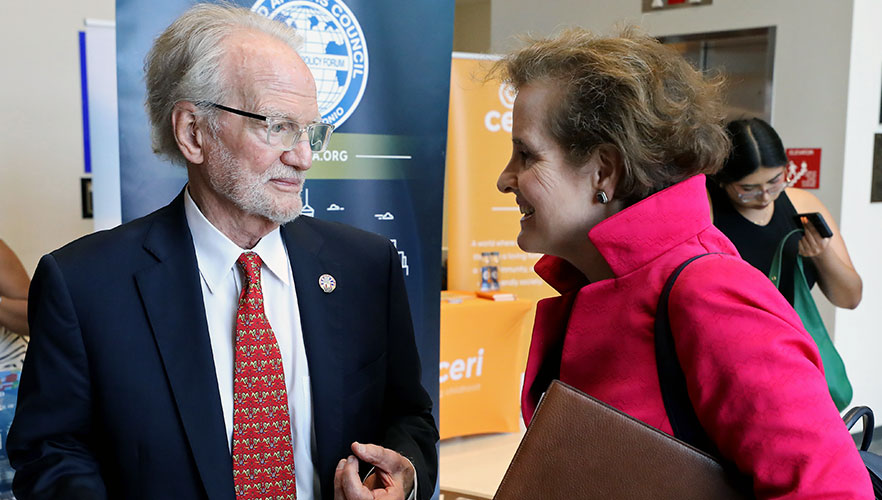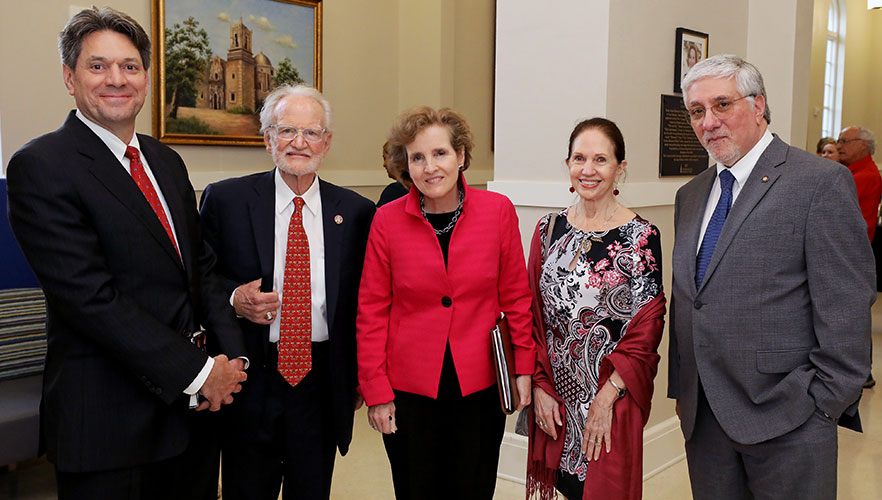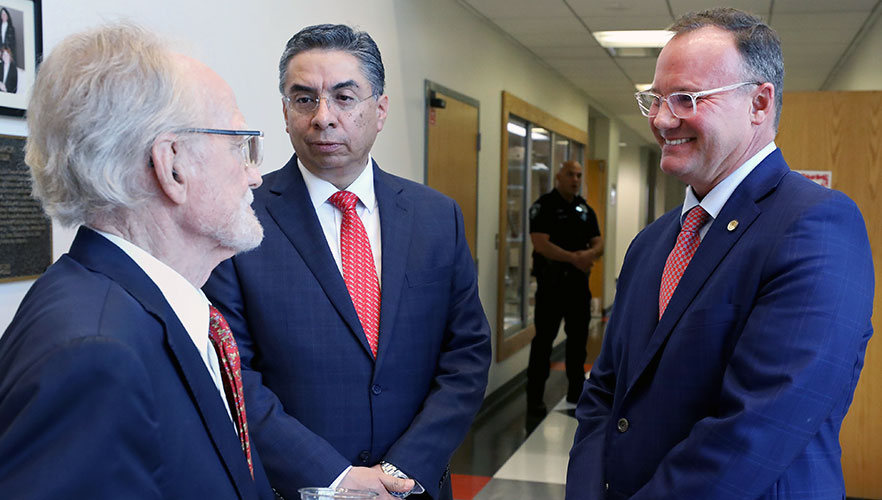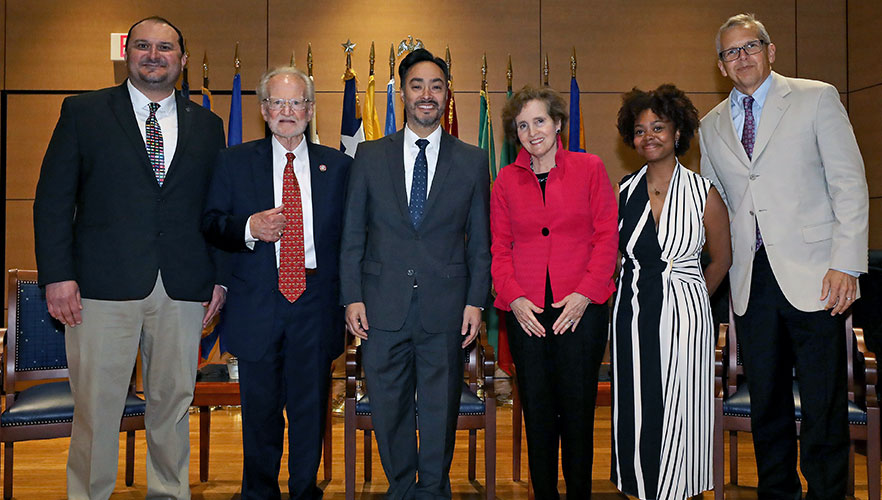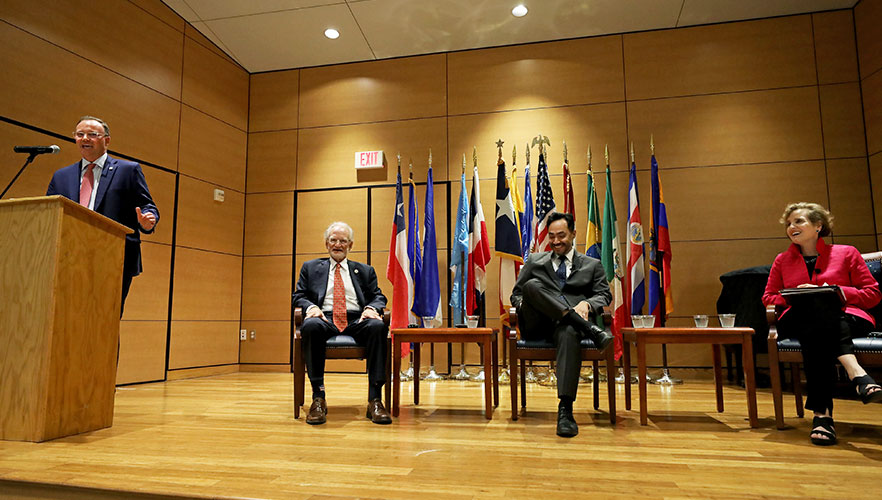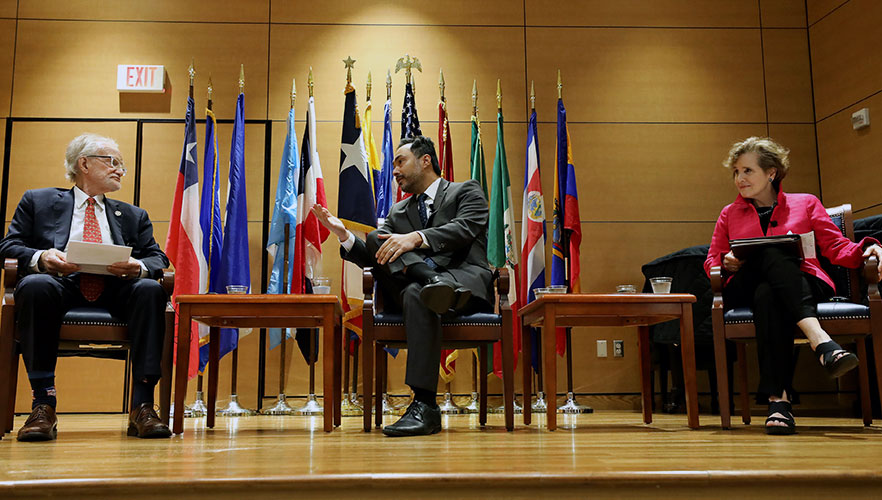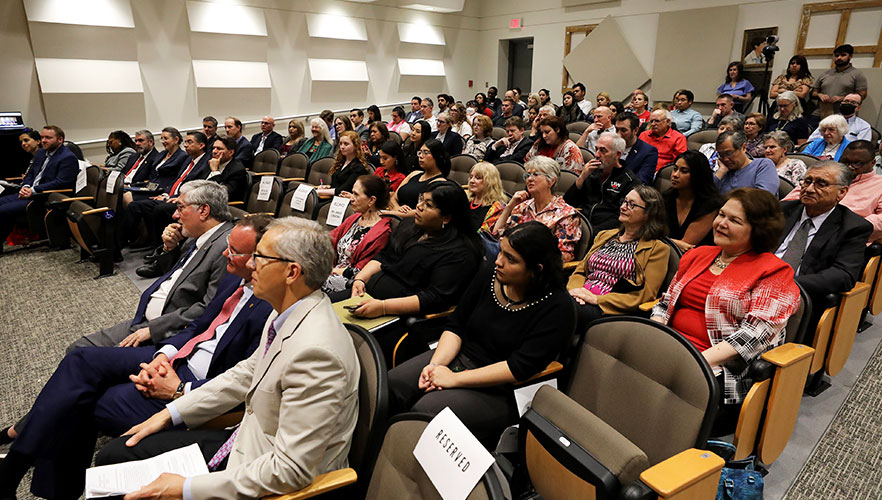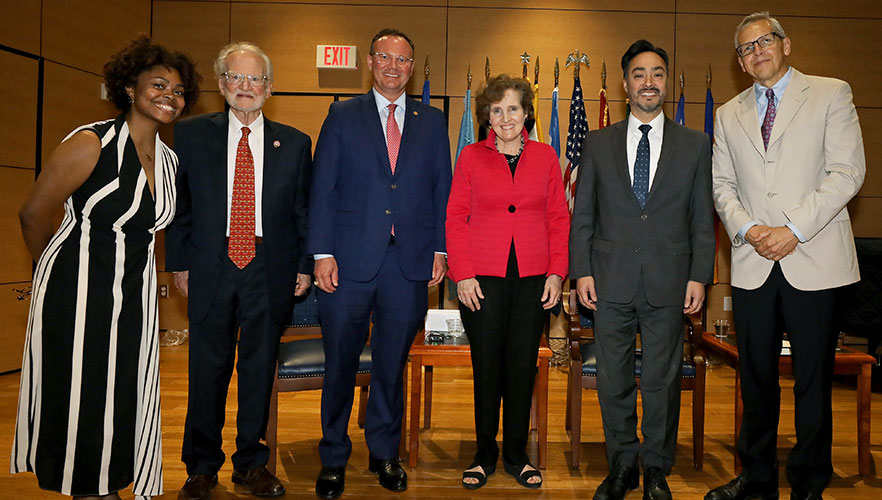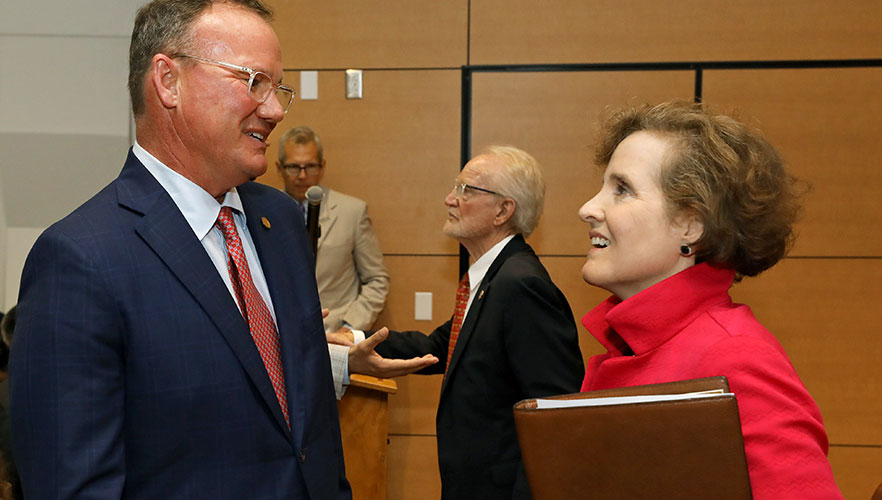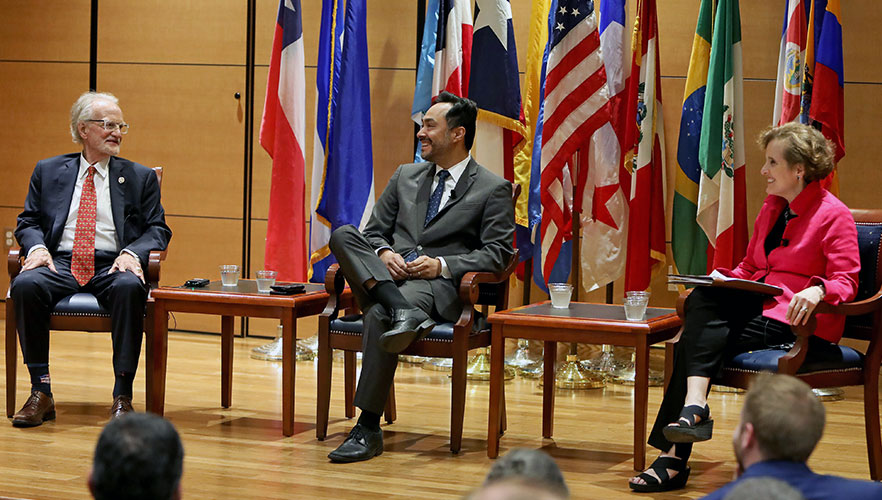Conversations with Ambassador Creagan: Congressman Joaquin Castro and Alice Albright Visit UIW
On Friday, May 3, the latest installment of the Conversations with Ambassadors Creagan series, hosted by the Liza and Jack Lewis Center of the Americas in collaboration with the World Affairs Council of San Antonio, took place in the UIW Seddon Recital Hall.
UIW had the privilege of welcoming Congressman Joaquin Castro and Alice Albright, CEO of the Millennium Challenge Corporation, to speak on the conversation’s topic of “Strengthening Democratic Governance and Sustainable Development Across the Globe.”
Congressman Joaquin Castro has represented Texas's 20th congressional district, which includes over half of San Antonio, in the United States House of Representatives since 2013. During the 117th Congress, he served as chairman of the House Foreign Affairs Subcommittee on international development, international organizations and global corporate social impact. He currently serves as the highest-ranking Democrat on the House Foreign Affairs Subcommittee in the western hemisphere.
Alice Albright has more than 30 years of international experience in the private nonprofit and public sectors, which includes previously serving as the CEO of the Global Partnership for Education and executive vice president and chief operating officer of the United States Export Bank. In her current role, she leads the Millennium Challenge Corporation (MCC), an organization that helps to support nations committed to democratic governance, economic freedom and investing in their people.
Ambassador James Creagan, an American Diplomat for 25 years, and current professor of Political Science at UIW, guided the conversation.
“Today’s chosen topic reflects a deep belief in the importance of democracy here and around the world,” stated Creagan, kicking off the discussion. “We fall short at times, but we still need to foster a democratic value.”
The three spent the conversation reflecting on the quality of democracy present within the nation and around the world, considering how to better expand democratic opportunities on a global scale.
Castro shared that although there are strong democracies found in every corner of the globe, authoritarian models of governance are also found in countries such as Russia, China, Turkey and Hungary. He noted that the authoritarian model prioritizes the desires of the leader, lacking consideration of the rights and necessities of its public.
“The United States historically has said it wants to be helpful but also wants countries to adhere to certain democratic norms that include freedom for your people, and opportunity for your people,” explained Castro. “There is a real competition around the world to make sure that nations are democratic. I still believe we're winning, but we certainly have our hands full with countries that are going the other way.”
Albright added a developmental perspective as she discussed how the MCC works to promote democracy.
“The MCC was created 20 years ago by President Bush around that fundamental concept that democracies are good for economic development and for opportunity. We work with a lot of lower- or middle-income countries that demonstrate they are on a democratic pathway and are trying to create opportunity for their people. When we identify an eligible country, we go big and deep to provide hundreds of millions of dollars of grant financing to help invest in [solving] the main challenges that they face towards economic growth.”
Both Castro and Albright listen to the needs of citizens in various regions of the world so that they can consider how to better provide essential resources for them that will allow them to flourish. Some of these resources include education, water, trade and humanitarian aid.
As progress continues to be made, Castro noted that he is always thinking how his work is going to help the people that he represents. To him, it is a joy to witness the direct positive impact being made as existing and young democracies receive the aid needed to help them support and represent their people.
In response to an attendee asking how the MCC helps to instill long term and systematic changes that help to relieve issues such as poverty, gender-based violence and migration, Albright said, “Almost every project we do has a long-term systemic aspect. 80% of our work is going to some primary structure like energy, roads, agriculture, clean water and sanitation. We help governments not only set in place a lot of the policy reforms that are required for the successful delivery of those services, but then we build the infrastructure necessary to deliver services.”
Dr. Rafael Hoyle, director of the Lewis Center of the Americas, was proud to witness the conversation, and shared that attendees were actively engaged in the event, intently listening to the guest speakers.
“For the Lewis Center, Congressman Castro is a particularly important member of our U.S. House of Representatives, not only because he’s from San Antonio, but because of his focus on the Americas as the Ranking Member of the House Foreign Affairs Sub-Committee on the Western Hemisphere. The fact that he was able to also bring Alice Albright of the Millennium Challenge Corporation made his visit all the more special. The turn-out for the event was the best we’ve had for the Conversations with Ambassador Creagan series. It was wonderful to see a packed house,” shared Hoyle.
The event also marked the last conversation that Ambassador Creagan will lead at UIW. After years of working in the U.S. State Department, as the President of John Cabot University in Rome and then as a faculty member at St. Mary’s and the University of the Incarnate Word, Ambassador Creagan will celebrate his retirement this May. The University thanks him for his immense contributions to the school’s legacy and wishes him well as he enters retirement.


